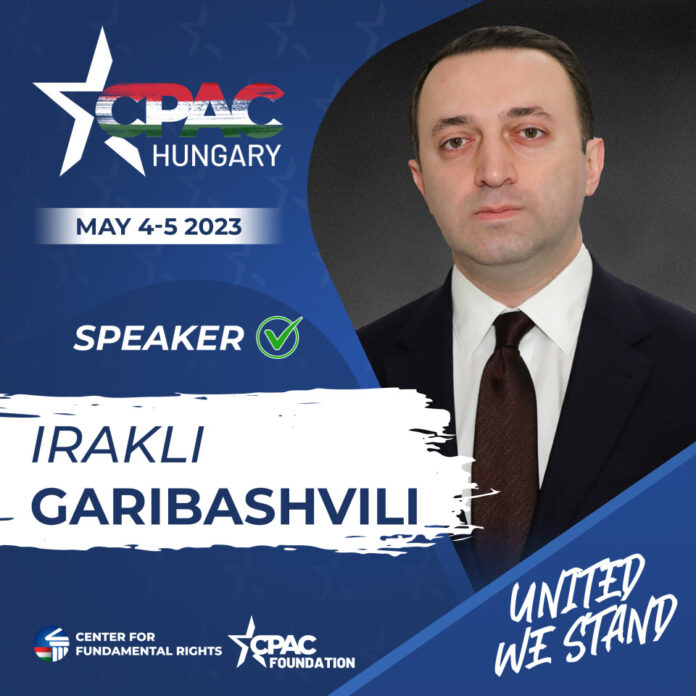Top Georgian MPs were in Budapest this week to seek assurances that Hungary will back Georgia’s bid for inclusion in the list of candidates for European Union membership. Their visit reflects concerns that Hungary could raise last-minute demands complicating the approval process just when EU leaders are expected to approve an earlier recommendation to grant Georgia candidate status.
Hungary’s Prime Minister, Viktor Orbán, whose sceptical views about Brussels are a matter of record, has repeatedly questioned the approaching EU enlargement process. Now that he has challenged opening talks about Ukraine’s accession, there are fears that this has implications for Georgia as well.
Last month, the European Commission, the EU executive arm, cleared the way to start accession talks with Ukraine and Moldova, while also granting candidate status to Georgia. EU leaders are expected to sign off on the Commission’s recommendation next week. Once its status as a candidate for EU membership is formalized, Georgia hopes to progress rapidly through the next stages of the process so that it can join Ukraine and Moldova in the accession talks.
Now, with less than a fortnight to go before the EU leadership convenes, PM Orbán is demanding that Ukraine’s accession be dropped from the summit agenda. He has written to European Council President Charles Michel urging him “not to invite the European Council to decide on these matters in December as the obvious lack of consensus would inevitably lead to failure,”
Orbán’s attempt to delay the expansion process is believed to be rooted in his pro-Moscow sympathies. Some observers, however, suggest it also signals his intent to put the squeeze on the EU for funds in exchange for supporting the enlargement goals. Whatever his motive, Georgia is becoming increasingly nervous.
In objecting to the expansion plans, Orbán made no reference to Georgia, yet concern is growing that his aim is to prevent the summit from bringing the three former Soviet nations any closer to the Brussels fold. As EU leaders pressure Orbán to fall in line, Georgia seems to be doing its level best to win Hungary’s support for its own EU integration aspirations regardless of Budapest’s resistance to Ukraine’s advancement.
Before departing for Budapest earlier this week, the chairman of the governing Georgian Dream party, parliamentary majority leader Iraki Kobakhidze, told reporters he was confident “that when the matter of granting Georgia the candidate status is going to be discussed next week, we will receive very strong support from Hungary.” He insisted that Budapest is a staunch supporter of Georgia’s integration with the EU, but noted that a constant dialogue is needed to make sure that support stays strong.
Georgia’s government has been carefully nurturing such a dialogue. Last year, Hungary and Georgia signed a strategic partnership agreement. This year, Georgian Prime Minister Irakli Garibashvili was the featured keynote speaker at an international right-wing conference in Budapest, after which Orbán subsequently visited Tbilisi.
The leadership of the two countries share similar views on issues ranging from social conservatism and regard for Russia to matters of faith. “It is hard to be Christian Europe,” Orbán exclaimed in comments to the press during his visit to Georgia. Both nations have been roundly criticized for lowering democratic standards, enabling political elites to control the judiciary and their shared reluctance to criticize Moscow for its invasion of Ukraine.
According to some local analysts, the Georgia Dream Party views Hungary as a role model worth emulating. However, the EU is pressing Georgia to institute democratic reforms, making it clear that this is key to realising its membership ambitions. Failure to bring membership any closer at the upcoming summit could cost the Georgia Dream party dearly in next year’s elections, given how keen Georgian voters are to join the EU.
Officials in Georgia claim they have no intention of getting embroiled in the Hungary-vs-the rest of the EU controversy about expansion. Instead, they will likely try to convince Orbán that, no matter what he does regarding Ukraine, he should still support Georgia’s bid. Tbilisi, they maintain, is the friendly ally Orbán needs as he finds himself more and more isolated within the EU.

